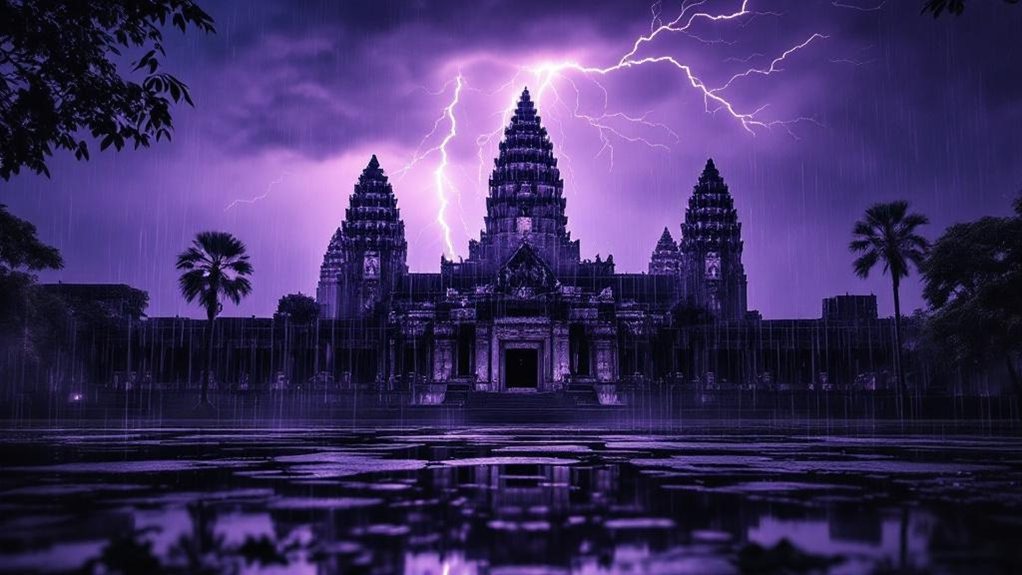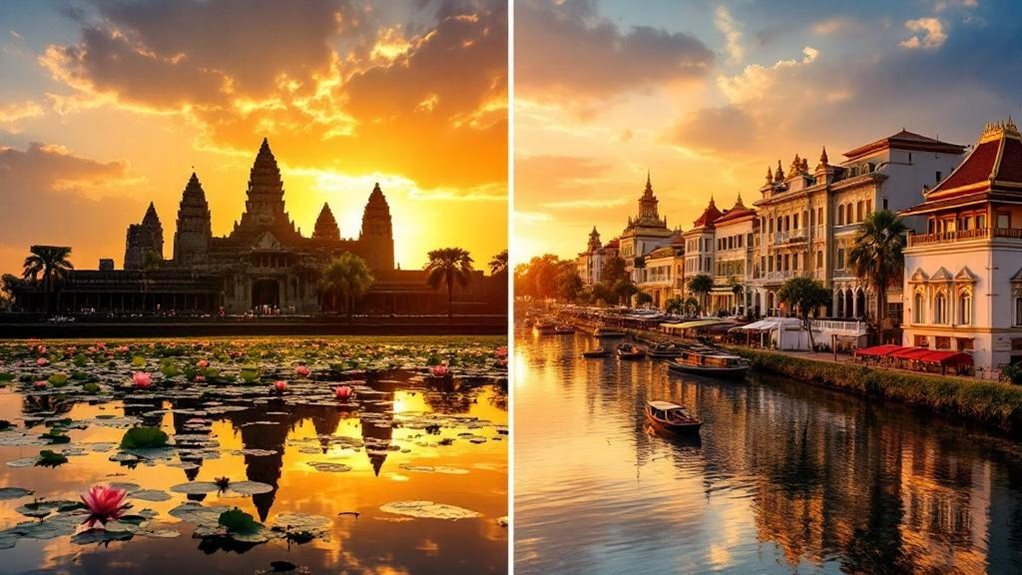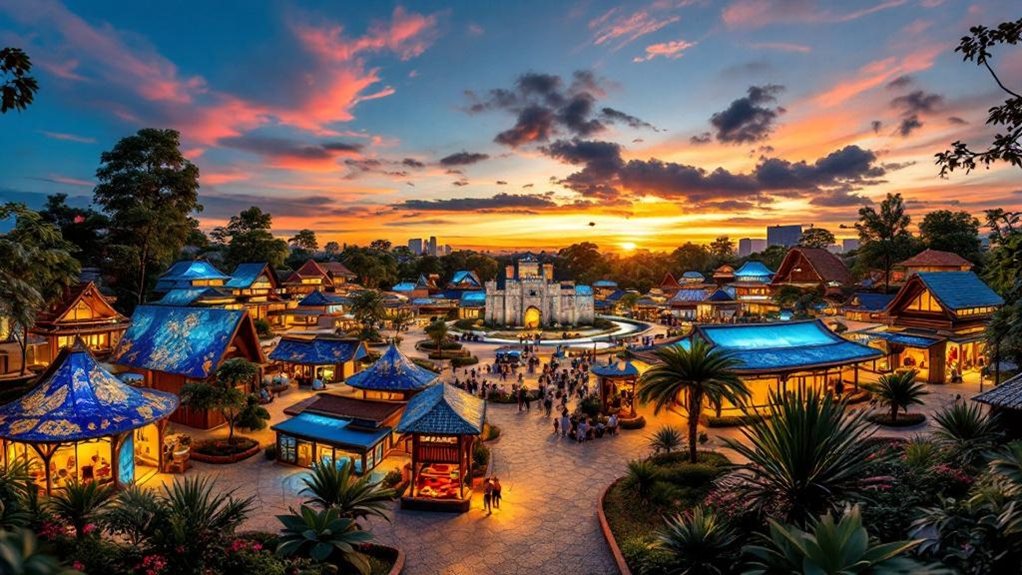On May 16, 2025, a fatal lightning strike during a spiritual ritual at Cambodia’s Angkor Wat killed three people and injured more than ten, all reportedly Cambodian nationals. The incident, which occurred during rainfall, highlighted inadequate lightning protection at the heritage site and prompted calls for improved safety measures. It also reignited longstanding Thai-Cambodian tensions as the event coincided with rituals related to the legendary curse of King Jayavarman IX, fueling renewed regional intrigue and further scrutiny of the ancient temple’s history and security. More details illuminate these complex dynamics.
A fatal lightning strike occurred at Angkor Wat, Cambodia’s iconic temple complex, on May 16, 2025, around 5:00 PM local time, during an active spiritual ritual held atop the ancient structure amid rainfall. The incident resulted in three deaths, including a 34-year-old man and a 52-year-old woman, and left more than ten others injured, most of whom were Cambodian nationals. No Thai tourists were reported among the casualties.
Emergency services responded rapidly, deploying ambulances to the site and facilitating hospital treatment for the injured, while Cambodian Red Cross officials distributed care packages to the families of those affected. On-site assistance was also provided by temple officials and bystanders who aided injured individuals before emergency personnel arrived. As Angkor Wat is Cambodia’s most prominent tourist attraction, the event drew swift attention from both local authorities and international observers concerned about visitor safety.
Swift emergency response and community support brought aid to victims and families immediately following the tragedy at Angkor Wat.
In the aftermath, the Cambodian government displayed caution in its public communication, with officials confirming fatalities only on the condition of anonymity due to political sensitivities. The Ministry of Tourism urged the removal of online posts about the event, citing concerns over potential harm to tourism. This measured approach is consistent with the tight government control of information under Prime Minister Hun Manet’s administration.
Despite the restrained official response, calls for increased safety measures at Angkor Wat and other heritage sites have intensified. Preliminary reports suggest that the lack of adequate lightning protection infrastructure, such as lightning rods or early warning systems, contributed to the tragedy, prompting experts and the public to demand urgent upgrades to mitigate future risks, especially during the region’s monsoon season. Tensions have reached the highest point in over a decade between Cambodia and Thailand, causing renewed scrutiny of incidents at shared heritage sites.
Cultural context amplified the incident’s significance. The lightning strike occurred during a spiritual ritual, highlighting the intersection of tradition and vulnerability at the sacred site, where large gatherings are common even during adverse weather.
The event renewed interest in the legendary curse associated with King Jayavarman IX and the Taeng Whan rebellion, which is believed by some to bring ruin to betrayers of the Angkor royal lineage. The strike followed a ritual intended to lift this ancient curse, leading many to interpret the incident as a supernatural sign, further intensifying local and regional intrigue about the temple’s history and cultural narratives.









